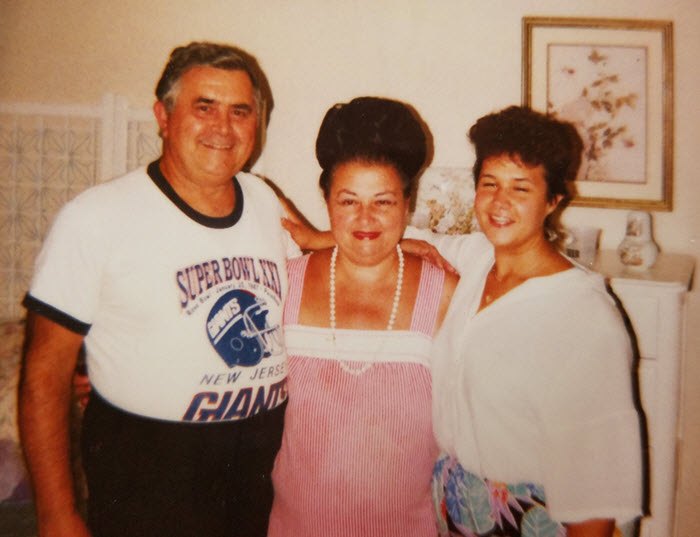None of them have anything to do with medicine.
When I tell my caregiver story, I always start when dad was first hospitalized. That was when I was hit with being fully responsible for mom. I would lie in bed at night thinking, “Where do I start?” “What do I do next?”.
What I’ve realized:
1. My caregiver role started way before I recognized it. It started when I made the decision to move back to New Jersey years ago. Over time, it became dinner with my parents once a week, then instead of going home, I would spend the night. This move into caregiving was so slow, that I didn’t identify as a caregiver until dad started to fail.
What I learned:
- Caregiving will sneak up on you if you’re not paying attention. If you’re starting do their grocery shopping while you are doing your own, if you are going with them to see a doctor, just to be “the second set of ears,” if you are helping to keep track of bills or medication, you have started taking on the caregiver role. Now is the time to begin those hard discussions, ask the hard questions and make sure legal plans are in place.
2. There is a big difference between caregiving when someone is chronically ill and dying, and when someone is relatively well, but needs help with daily life.
The intensity of the emotions and the stress found in caring for dad in the last year of his life is hard to explain if you’ve never experienced it. I found myself on autopilot, numb, reeling from one crisis to another, waiting for the other shoe to drop. In contrast, Mom is in maintenance mode. We have a care plan that is working, and her health is stable, but it takes time and coordination to keep her healthy, at home, and safe.
- There is stress, grief, and a roller coaster of emotions in both caregiving situations. With dad, it was knowing we didn’t have very long and feeling helpless because he was so ill. With mom, it is around how my life has changed for the foreseeable future. It is letting go of what I thought my life would be right now, and putting my future on hold.
- When someone is dying, you need to name it to deal with it. Dad was dying, but he didn’t want my mother to know how tired he was of fighting. He and I were in this together, so I respected his wishes, but it was lonely. I wish I had reached out to a caregiver group, either in person or online. I found it hard to talk about my father dying with family and friends because my emotions were close to the surface. Caregiver groups can give you the freedom to use the words, and others in a similar situation will support you in ways you don’t even know you need.
3. The relationship you had with the parent growing up can color and influence the caregiving experience.
Dad and I are a lot alike. My relationship with him was always easy. We were often a team, even working for the same consulting group for a while and going on client calls together. On the other side, Mom and I often struggled to find common ground. Growing up, it was hard to let go of expectations on both are parts.
- Caregiving gives you the opportunity to learn and grow in ways you won’t expect. I believe every relationship has a contract. It is unspoken, can grow and change throughout the years, but bottom line it is an agreement on roles, what you are willing to do for one another, and how you will do it. Early on mom and I had a conversation about the contract she and dad had as a married couple. And how our contract, how we would work together, had to be different. It wasn’t easy getting to this contract, both of us had to let go of things from the past. But I’m proud to say we are a team now. And along the way I learned the importance of protecting my time and space where I can.
Now, here I am five years into full-blown caregiving. Not only can I name it, I wear the badge proudly.
Interesting perspectives:
Is there a difference between caring for moms and dads?
Life Lessons You only Learn When You’re a Caregiver
Disclaimer: The material in this blog is for educational purposes only. It is not intended to replace, nor does it replace, consulting with a physician, lawyer, accountant, financial planner or other qualified professional.


Amen to your article. I wish I knew a quarter of what learned before I took on the role of caregiver. I would have approached things differently. Like you I also wished I had participated in a support group. Now I go to support group to help others to understand what I have learned
Janet, I love that you are sharing the knowledge gained as a caregiver with others! It takes a village.